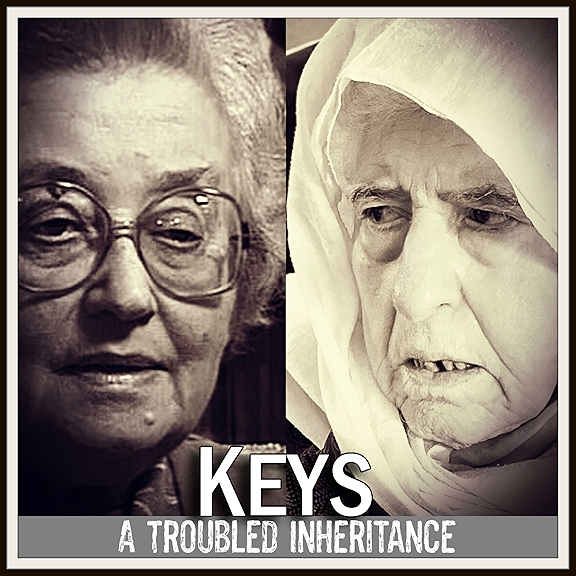08-11-2023
S1E10 CAN HOLOCAUST VINDICATE OCCUPATION?
This double episode closes the first season of Keys.
With the Hamas invasion and massacre of October 7 2023 leading to the 2023 Israel-Gaza War, this episode brings its historical understanding to the cruel events that are unfolding as we work. We reveal that the horror that fills the news every day has its roots deep in the history of Israel-Palestine.
UN Secretary-General António Guterres reminded the world that “the attacks by Hamas did not happen in a vacuum”. This special episode shows how the deeds and decisions of the past are projected on to the screen of today. If we know our history, can that help us to escape it?
PLACE NAMES
When the place names in Keys get confusing, these notes will help.
Mike’s grandparents came from Galicia, a part of eastern Europe on no modern map. Today some of Galicia is southeast Poland, another part is western Ukraine. Galicia no longer exists.
In the last century, many of Galicia’s Jews, Ukrainians and Poles also ceased to exist, violently, as their province was repeatedly ruptured by the front lines of two World Wars, genocide and ethnic cleansing.
Before 1918, Galicia was the Austro-Hungarian Empire’s most eastern province. Its capital was Lemberg (German) = Lwów (Polish) = Lviv (Ukrainian).
Three names, but one city.
Further south, Mike’s grandfather grew up in Stanislau (German); left Stanislaviv (Ukrainian) in 1918 for a better life in Germany; deported back to Stanisławów (Polish) in 1938, which became Stanislaviv (Ukrainian) in 1939; killed in Stanislau (German) in 1941.
Before Mike first visited that city in 1999, the Soviet Union renamed it Ivano-Frankovsk (Russian). Today the place where he found his grandfather’s surviving colleagues and allies is called Ivano-Frankivsk (Ukrainian).
Five names, but one city.
Fatima Abu Salem grew up in the thriving Palestinian village of Burayr, at crossroads leading to Gaza, Hebron and Beersheba. Today a few ruins of Burayr are surrounded by the fields of Kibbutz Bro’r Hayyil.
Two names, but one place.
Place names matter. How we name places reveals our own histories, identities and yearnings.
CREDITS for this episode
Testimony
Testimony and commentary by Mike Joseph, Asha Phillips
Interpreters and Translators
Dina Brandt
Alex Dunai
Markus Hartmann
Burkhardt Kolbmuller
Svitlana Kovalyk
Itamar Shapira
Nadia Slobodyan
Hannah Kleinfeld
Atef Alshaer
Images
Mike Joseph
Sami Abu Salem
Music
Keys Theme & Variations on a Bach Prelude in B minor - Micha Wink
Sources
Eulogy for Ro’i Rothberg by Moshe Dayan, Avnei Derekh, Tel Aviv 1976, p191; q. in Zertal, Idith, Israel’s Holocaust and the Politics of Nationhood, Cambridge University Press 2005, p180
Universal International News, 6 August 1956, Suez Crisis
Theodor Meron, A life of learning, American Council of Learned Societies Occasional Paper No 65, Pittsburgh, 9 May 2008. Memorandum by Legal Adviser, Ministry of Foreign Affairs (Theodor Meron) to Political Secretary to the Israeli Prime Minister, 18 Sep 1967
Israeli Kahan Commission Report is main source for the Israel-Falange history. Its Appendix can be accessed at: http://www.documentcloud.org/documents/4887715-Kahan-Commission-Appendix-Complete-English.html
Ben Gurion, speaking to the Israeli Cabinet, May 24, April 26, May 7, 1953, Israel State Archives; quoted in Tom Segev, A State at Any Cost, 2018, p512
PRODUCTION
Mike Joseph Producer
Zac Ware Sound Editor
Pamela Koehne-Drube Audience and Web Advisor
PRESENTERS
Mike Joseph
Asha Phillips
SPEAKERS AND CAST in programme order
Sami Abu Salem, interviewed by Mike Joseph
James Stewart voicing Moshe Dayan, Theodor Meron, BBC World Service Newsreader, Baruch Ben Meir
Rabbi Dr Gerhard Graf voiced by Mark Levene
Lilli Gold voiced by Christine Willison
Hoda Khoury, interviewed by Mike Joseph
Primo Levi voiced by Andrea Brondino
António Guterres, UN Secretary-General
Gilad Erdan, Israeli Ambassador to UN
